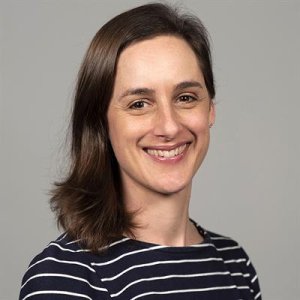Dr Jane Wilbur
Assistant Professor
United Kingdom
I am an Assistant Professor at the International Centre for Evidence in Disability (ICED) at the LSHTM, focusing on disability and water, sanitation and hygiene (WASH). I have worked in East and Southern Africa, South Asia and the Pacific Islands and have extensive experience in designing and implementing inclusive WASH programmes, research and evaluations, as well as disseminating research to influence policy and practice.
My PhD research at the LSHTM explored the menstrual health requirements of people with disabilities, developed the Bishesta campaign - a menstrual health behaviour change intervention for people with intellectual disabilities in Nepal, and assessed its feasibility. With World Vision Vanuatu, I adapted the campaign for Vanuatu’s humanitarian context, and now the Veivanua campaign is being scaled up across the country. Currently, I am the Principal Investigator on a collaborative study exploring the impacts of climate risks on WASH for people with and without disabilities in Bangladesh.
Before working at the LSHTM, I was the Equality, Inclusion and Rights Advisor at WaterAid. I focused on disability, gender, chronic illness, ageing and WASH, and mainstreaming equality and inclusion across the organisation. I have also worked for disability organisations in the UK.
Affiliations
Teaching
I am a module organiser for LSHTM MSc Study Unit on 'Global Disability and Mental Health'. I teach on that module and the LSHTM MSc 'Water, Sanitation, Hygiene and Health', ‘Climate Change and Planetary Health’, and 'Designing Disease Control Programmes in Developing Countries.' I supervise three LSHTM PhD candidates and teach on Loughborough University's Water Management for Development MSc programme, and Columbia University's Global Menstruation MOOC.
Research
The overall objective of my research is to ensure people with disabilities access climate-resilient inclusive WASH services and achieve menstrual health. This involves conducting policy analyses, generating rigorous evidence using participatory methods, and co-designing, piloting and evaluating interventions to improve access to WASH for people with disabilities and their caregivers.
My current and recent projects are:
1. Inclusive pathways towards climate-resilient WASH in Bangladesh. This research is in partnership with icddr,b and World Vision and is funded by the Australian Government's Water for Women's Fund.
2. Evaluating the Hygiene Behaviour Change Coalition for COVID-19 prevention to explore the extent to which project partners have included disability and ageing in their hygiene promotion programmes. This is with PENDA (Programme for Evidence to Inform Disability Action), with funding from the UK Foreign and Commonwealth Development Office.
3. Translating disability inclusive water, sanitation and hygiene policies into practice: lessons learned from Cambodia and Bangladesh. This research is in partnership with WaterAid, and is funded by the Australian Government's Water for Women's Fund.
4. Exploring the menstrual experiences of people with intellectual disabilities and their caregivers, and developing a menstrual health intervention for this group in the humanitarian context in Vanuatu. This is in partnership with World Vision, with funding from Elra's Humanitarian Innovation Fund.
